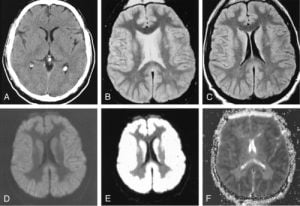Anoxic Brain Injury – Causes, Symptoms, Prognosis
Get a Free Consultation
An anoxic brain injury occurs when brain cells are damaged due to a total lack of oxygen. Doctors also refer to the condition as anoxia. Brain cells are effected almost immediately without oxygen and begin dying off permanently after only four minutes of oxygen deprivation. Each additional passing second results in cumulative brain cell death. Anoxic brain injuries are a common childbirth injury, but also results from drowning or from cases of asphyxiation or strangulation.
Doctors sometimes associate anoxic brain injuries with hypoxic brain injuries or hypoxia. However, the two classifications refer to different events. While an anoxic brain injury results from a complete lack of oxygen to the brain, a hypoxic brain injury results from a reduced supply of oxygen to the brain. Hypoxic injury is more commonly associated with chronic illnesses or environmental conditions, such as low oxygen saturation at high altitudes. Anoxic injury is more typically associated with cases of complete asphyxiation.
Causes of Anoxic Brain Injury
Anoxic brain injuries can be caused by a few different environmental conditions, diseases, disorders or accidents such as:
- Brain Tumors
- Cardiac / Respiratory Arrest
- Childbirth (strangulation)
- Asphyxiation from entrapment or suicide attempt
- Drowning
- Drug Use (Inhalants / Opioids)
- Suffocation
- Electrocution
- Malfunctioning Gas Appliances in the Home (Carbon Monoxide)
- Poisoning
Symptoms of Anoxic Brain Injury
In addition to childbirth injuries, an anoxic brain injury may follow a long period of unconsciousness. A comatose patient may enter a vegetative state as a result of a serious anoxic injury. After any patient has been in comatose for any length of time, doctors will monitor a patient waking from a coma for signs of brain injury such as:
- Confusion/inability to concentrate
- Impaired balance/coordination
- Headache
- Mood swings/irritability/depression
- Sleep disruptions/loss of consciousness/fainting spells
- Seizures
Anoxic Brain Injury Prognosis
After an accident involving asphyxiation or as a coma patient awakens, a neurologist may order one or more of the following tests if he/she suspects an anoxic injury:
- CT s- a test that scans the head
- Electroencephalogram (EEG)—a test that measures the amount of electrical activity in the brain
- Evoked potential tests—tests used to evaluate the visual, auditory, and sensory pathways
- MRI (magnetic resonance imaging) of the head
- SPECT scans—a CT scan variant that examines specific areas of the brain for blood flow and metabolism
After an anoxic brain injury, prognosis varies tremendously based on the severity of damage. Damage is often widespread, affecting major regions of the brain. In minor cases, a person may only suffer memory loss. In moderate cases, permanent effects ranging from cognitive deficits, muscle tremors, and seizures can occur. Anoxic brain injuries at birth can cause Cerebral Palsy (CP), a lifelong condition. In cases of severe damage, the patient may require placement in a long-term care facility. In the most severe cases, the patient may remain in a persistent vegetative state with the inability to regain consciousness.
If your brain injury was caused by the negligence of another, a Tampa personal injury attorney can help you with your settlement.
References:
